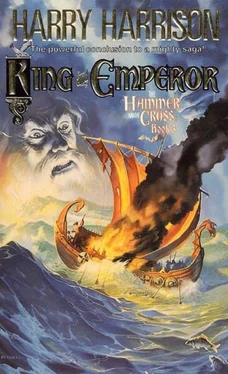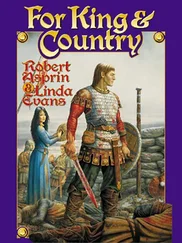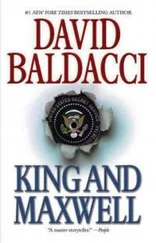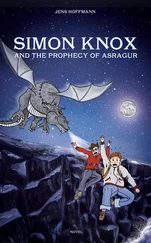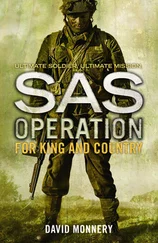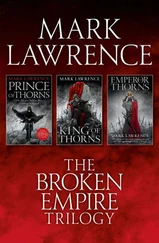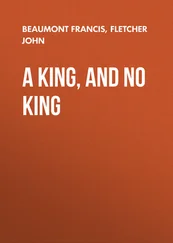He took too long to decide. “I thought so,” said Godive and whirled away, dragging her children with her. “Everything is for men. And everything for money.”
She did not trouble to lower her voice. As she swept towards the wain, the two kings, Cwicca and Osmod, the miller and his wife, the two bands of royal escorts, all stared after her. Then all except Shef turned their eyes back to him.
He dropped his gaze. “It's not like that,” he muttered, the same anger growing inside him that he had felt when the man crashed from the tower and they had asked him to pay for failure nonetheless. “You can't do everything. You have to do what you know how to, first, and then see where that leads you. Women get their share of what we have done. More land, more food, more wool.”
“Aye,” agreed Cwicca. “A few years ago, every winter you saw little bairns in rags and barefoot every winter, crying for cold and hunger. Now they've coats at least, and hot food inside them. Because the king protects them.”
“That's right,” said Shef, looking up, his face suddenly fierce. “Because all this”—his arms waved at the mill, the fields, the drainage channels, the waiting wain—“all this depends on one thing. And that is force. A few years ago, if any king, if good King Edmund or King Ella had done any wise thing, as soon as he had enough silver to use, the Vikings would have been on him, to take it away and turn the land to beggary again. To keep it like this we have to sink ships and break armies!”
A growl of immediate assent from his men and Alfred's, all of whom had won their way by battle alone.
“Yes,” Shef went on, “all this is well enough. And I would be happy to see women take their part of it. But what I need most, what I would pay gold for, not silver, is not a new way of hitching horses, or of draining marshes, but a new way to defeat the Emperor out there. Bruno the German. For if we have forgotten him, here in the marsh, he has not forgotten us. Rig, my father”—Shef's voice rose to a shout, and he pulled from the breast of his tunic his silver ladder-emblem—“send me a new thing to bring victory in battle! A new sword, a new shield! New crossbows, new catapults. There is no other wisdom we need more. If Ragnarök is to come, let us fight it and win!”
Their king safely out of the way for a long morning, his closest advisers and friends had seized the opportunity to discuss him. They sat, the three of them, Brand, Thorvin and Hund, near the top of the great stone tower of the House of Wisdom, in Thorvin's private chamber, looking out over the busy and fertile countryside, the green fields divided by the long white strip of the Great North Road, riders and carts passing steadily along it. With them, though, and at Thorvin's insistence, sat a fourth man: Farman priest of Frey, one of the two great visionaries of the Way. An unimpressive figure, and one who had not shared the perils of the others, but deep in the secrets of the gods, or so Thorvin insisted.
Brand the giant Norwegian had looked askance at Farman for a while, but he had known the others, at least, long enough to speak frankly. “We've got to face it,” he began. “If he goes, Shef I mean, then everything will go. There's people like Guthmund, owes everything to the One King, stone-cold reliable as far as he's concerned. But would Guthmund agree to co-operate with Olaf, or Gamli, or Arnodd, or any of the other kings in Denmark or Norway? He would not. His own jarls wouldn't let him if he did. As for obeying an Englishman… No, this is a one-man business. The trouble is, the man's mad.”
“You've said that before,” said Hund the leech reprovingly, “and been proved wrong.”
“All right, all right,” Brand conceded. “Maybe he's not mad, just strange, he always has been. But you know what I mean all the same. He has won many battles and survived many strange events. But each one seems to take something out of him. And it isn't put back.”
The other three considered the matter: Hund the leech, priest of Ithun and Englishman, Thorvin the smith, priest of Thor and Dane, Farman the visionary, a man whose race was by now forgotten.
“He lost something when he killed Sigurth,” volunteered Hund. “He lost that lance. None of us knows how he came by it, exactly, but he valued it for some reason or another. They say it is the lance the new Emperor always carries with him, and Hagbarth says he saw the two fight, and Bruno run off with it. Maybe it is the good luck sign that the Christians call it, and that is what he has lost.”
Brand shook his head decisively. “No. We have experts on luck here, and he has not lost that. He is as lucky as he ever was. No, it is something else. Something to do with how he feels about himself.”
“He lost friends that day at the Braethraborg also,” Hund suggested again. “The young man from the Ditmarsh, and Cuthred the champion. Could he feel—guilty, maybe, because he lived and they did not?”
Brand, the veteran warrior, chewed on the thought, not much liking the taste of it. “I have known things like that,” he conceded eventually. “But I don't think that's it. To tell the truth”—he looked round before going on. “I think it's to do with that damned woman.”
“Godive, Alfred's wife?” said Hund, shocked. He had known them both since all three were small children.
“Yes, her. She talks to him as if he was a dog, and he flinches like one that has been beaten too often. But not just her. There was the other one too, Ragnhild, the queen in Norway. She took something from him. He did not kill her, but he caused her death, and her son's. If he feels guilty it is not about the men he has hurt, but about the women. That's why he will not take another one.”
A silence. This time it was Hund's turn to chew on a thought and not relish the taste of it.
“Talks to him like a dog,” he said in the end. “My name means ‘dog,’ as you know. My master, Shef's stepfather, thought that was all I would ever be to him. But he gave Shef a dog's name too, in hatred. We see new folk smile all the time when they hear us say ‘King Shef,’ as if we were saying ‘King Bowlegs’ or ‘King Fang.’ Norsemen cannot even pronounce it. You know Alfred has asked him several times to take another name, one that both English and Norse could say and honor: Offa or Atli, some hero-name from the past. Yet you say his is a hero-name, Thorvin? Perhaps it is time you explained that to us. For I feel whatever is happening here is the gods' business as well as ours. Tell us the whole story. And tell us why the Way has accepted him in the end, as the One who is to come. The three of us here, after all, know more of his story than anyone else in the world. And Farman is our guide to the gods. Maybe between the four of us we can judge it.”
Thorvin nodded, but hesitated a while, to organize his thoughts.
“It's like this,” he said in the end. “There is a very old story the Danes tell. It has never been turned into a poem, and it is not part of our holy books, or not one that all accept. I used to think little of it as well. But the more I reflect on it, the more it seems to me that it has a ring about it, a stink of old age. I believe it is a true story, and that it has meaning in the same way that the lays of Völund or of dead Balder do.
“One way that it is told is this. Many years ago—about the time that Christians say their Christ was born—the Danes found themselves without a king. They had driven out the last of their royal line, that Hermoth who is said to be the favorite warrior of Othin in Valhalla, for his cruelties. But without a king the cruelties grew even worse. It was an age when brother slew brother and no man's life was safe except when he had weapons in hand.
Читать дальше
